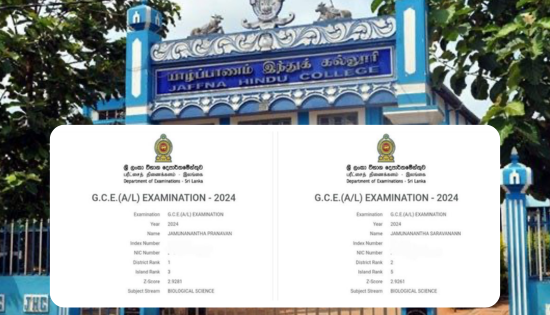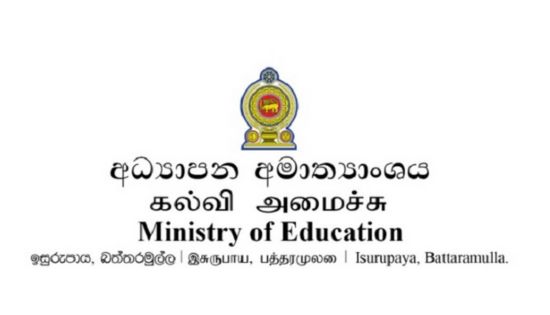The Difference Between Accredited and Recognized Degrees
When choosing a degree program, it’s important to understand two key terms: accredited and recognized degrees. These terms can affect your career opportunities, further studies, and even the value of your qualification. Knowing the difference can help you make the right decision for your future. Let’s explore what they mean and why they matter.

What is an Accredited Degree?
An accredited degree is one that has been reviewed and approved by an official accreditation body. Accreditation ensures that the program meets specific academic and professional standards. These standards are set by organizations that specialize in quality assurance for education. For example, engineering programs might be accredited by professional engineering bodies, while business programs may be accredited by international business councils. Accreditation often guarantees that the degree is recognized not only locally but also internationally.
Examples of Accredited Degrees:
- A Bachelor of Engineering accredited by the Washington Accord is recognized in many countries, ensuring global acceptance of the degree.
- A business degree accredited by AACSB (Association to Advance Collegiate Schools of Business) is highly regarded in the corporate world.
What is a Recognized Degree?
A recognized degree is one that is accepted by the government or relevant authorities of a country. While these degrees are valid and may allow you to work or continue studies within that country, they may not always meet international standards. Recognition usually means that the degree is officially approved by a local education authority but doesn’t necessarily go through the rigorous quality checks of accreditation.
Examples of Recognized Degrees:
- A degree from a local university that is recognized by the Ministry of Education in a particular country may qualify you for government jobs or local opportunities.
- Some professional qualifications, like diplomas issued by private institutions, are recognized by specific industries but may not be accredited.
Why Should You Check These Details?
Understanding whether a degree is accredited or recognized is crucial for your future. Here’s why:
- Global Opportunities: If you plan to work or study abroad, an accredited degree is often essential as it meets international standards.
- Professional Licenses: Certain fields, like medicine or law, require accredited degrees to obtain licenses. Without accreditation, you might face hurdles in your career.
- Quality Assurance: Accreditation guarantees a certain level of quality in education, ensuring you gain the skills and knowledge employers expect.
On the other hand, recognized degrees can be sufficient if your plans are local and you don’t need international recognition. However, you should always verify with the relevant authorities to ensure the degree suits your goals.
Choosing the right degree is a big decision, and understanding the difference between accredited and recognized degrees can help you avoid future complications. Always research the university and program thoroughly. Check if it is accredited by a reputable body and recognized by local authorities. This step will give you confidence that your investment in education is worthwhile and beneficial for your career.
Related News
Plans underway to integrate vocational training at school level – PM
Minister of Vocational Education, Prime Minister Harini Amarasuriya, says adequate attention is not drawn towards vocational education, but moving forward, necessary action…
Read MoreBBA (Hons) – Business Management – SLIIT
Employers prefer graduates with a broad skill set over those with specialized knowledge in today's fast-paced workplace. This demand is met by…
Read MoreCelebrating Innovation in Design : Uvinya Munasinghe Wins “Bench It” 2025
The City School of Architecture is shining with pride as one of its talented students, Uvinya Munasinghe, nailed the top spot in…
Read MoreSanitary pads for schoolgirls : announcement from Education Ministry
The 2025 programme to distribute sanitary pads to schoolgirls in Sri Lanka will be implemented exclusively through four commercial entities, the Education…
Read MoreApplication for Grade 1 Admission in Govt Schools 2026
Today, the Ministry of Education announced the release of instructions regarding the admission process for Grade One students in State schools for…
Read MoreCourses
-

IMC – Bachelor of Psychology
IMC Education Overview IMC Campus in partnership with Lincoln University College (LUC) Malaysia offers Bachelor of Psychology Degree right here in Sri… -

ANC – BA (Hons) International Business Management (Top-Up)
ANC Education Overview Designed in partnership with public and private business organizations, this program develops one’s ability to critically evaluate business models… -

IIT – BSc (Hons) Computer Science
IIT Campus Overview BSc (Hons) Computer Science provides a solid foundation and training regarding the fundamentals of the computer science field, along… -

APIIT – BSc (Hons) Cyber Security
APIIT Sri Lanka Overview Our BSc (Hons) Cyber Security award is designed to launch your future career in the protection of software… -

ICBS – BSC (Hons) Business Management with Marketing Management
ICBS Overview The BSc (Hons) Business Management with Marketing program, awarded by Queen Margaret University (QMU), is a highly regarded degree that… -

UTS – Diploma of Science
UTS College Sri Lanka Overview The Diploma of Science is designed to empower you to apply scientific thinking and analysis to important… -

CSA – Master of Architecture and Environmental Design
City School of Architecture Overview The Master of Architecture and Environmental Design Degree at CSA is awarded by the University of the… -

APIIT – BSc (Hons) International Business Management
APIIT Sri Lanka Overview Increasingly businesses are becoming more and more international. This requires business management professionals to have knowledge, skills and… -

IIT – BSc (Hons) Artificial Intelligence And Data Science
IIT Campus Overview The BSc (Hons) Artificial Intelligence and Data Science course is awarded by Robert Gordon University (RGU) in the UK… -

ICBS – International Degree Foundation in Business / IT
ICBS Overview The Scottish Qualification Authority (SQA) is a globally recognized organization dedicated to education and qualification development. SQA is responsible for… -

APIIT – BA (Hons) Finance and Business Enterprise
APIIT Sri Lanka Overview Finance and accounting are no longer just about taxation and the management of financial capital. This award will… -

APIIT – MBA General
APIIT Sri Lanka Overview The MBA is awarded by Staffordshire University, UK. This award is an advanced course of study in management… -

ANC – LLM in International Business & Commercial Law
ANC Education Overview This course is designed for graduates of law, business and finance in a legal or a corporate job role… -

AOD – BA (Hons) Fashion Design and Marketing
Academy of Design Overview The syllabus is from the UK’s Northumbria University, as one of their most revered flagship programmes and is… -

APIIT – MSc. Marketing Management
APIIT Sri Lanka Overview This MSc Marketing Management degree – awarded by Staffordshire University, UK is an advanced course of study in…
Newswire
-

New World Record from Wanindu Hasaranga
ON: July 5, 2025 -

Opposition Leader Warns of Looming Debt Crisis Without 5% Growth
ON: July 5, 2025 -

Thriposha to Launch 100 New Retail Outlets Across Sri Lanka
ON: July 5, 2025 -

Police slams Irresponsible Media Coverage of Seatbelt Regulations
ON: July 5, 2025 -

Over 5,000 Dengue Risk sites identified
ON: July 5, 2025










